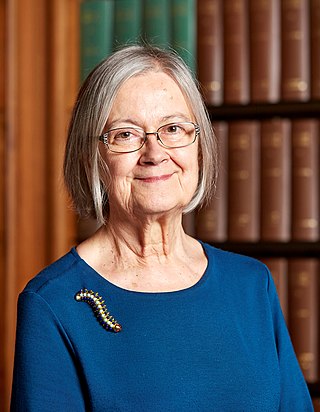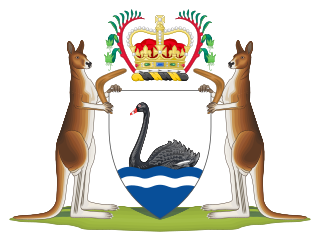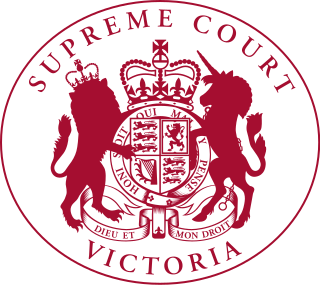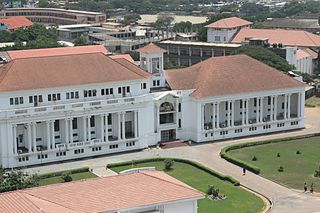Related Research Articles

The Supreme Court of Canada is the highest court in the judicial system of Canada. It comprises nine justices, whose decisions are the ultimate application of Canadian law, and grants permission to between 40 and 75 litigants each year to appeal decisions rendered by provincial, territorial and federal appellate courts. The Supreme Court is bijural, hearing cases from two major legal traditions and bilingual, hearing cases in both official languages of Canada.

Brenda Marjorie Hale, Baroness Hale of Richmond,, is a British judge who served as President of the Supreme Court of the United Kingdom from 2017 until her retirement in 2020.

The Court of Appeal for Nova Scotia is the highest appeal court in the province of Nova Scotia, Canada. There are currently 8 judicial seats including one assigned to the Chief Justice of Nova Scotia. At any given time there may be one or more additional justices who sit as supernumerary justices. The court sits in Halifax, which is the capital of Nova Scotia. Cases are heard by a panel of three judges. They publish approximately 80 cases each year.

The Supreme Court of the United Kingdom is the final court of appeal in the United Kingdom for all civil cases, and for criminal cases originating in England, Wales and Northern Ireland. As the United Kingdom’s highest appellate court for these matters, it hears cases of the greatest public or constitutional importance affecting the whole population.

The Supreme Court of New South Wales is the highest state court of the Australian State of New South Wales. It has unlimited jurisdiction within the state in civil matters, and hears the most serious criminal matters. Whilst the Supreme Court is the highest New South Wales court in the Australian court hierarchy, an appeal by special leave can be made to the High Court of Australia.

The Supreme Court of Western Australia is the highest state court in the Australian State of Western Australia. It has unlimited jurisdiction within the state in civil matters, and hears the most serious criminal matters.

The Supreme Court of the Australian Capital Territory is the highest court of the Australian Capital Territory (ACT). It has unlimited jurisdiction within the territory in civil matters and hears the most serious criminal matters.

The Supreme Court of Texas is the court of last resort for civil matters in the U.S. state of Texas. A different court, the Texas Court of Criminal Appeals, is the court of last resort in criminal matters.

The High Court of the Hong Kong Special Administrative Region is a part of the legal system of Hong Kong. It consists of the Court of Appeal and the Court of First Instance; it deals with criminal and civil cases which have risen beyond the lower courts. It is a superior court of record of unlimited civil and criminal jurisdiction. It was named the Supreme Court before 1997. Though previously named the Supreme Court, this Court has long been the local equivalent to the Senior Courts of England and Wales and has never been vested with the power of final adjudication.

The Federal Court of Australia is an Australian superior court which has jurisdiction to deal with most civil disputes governed by federal law, along with some summary and indictable criminal matters. Cases are heard at first instance mostly by single judges. In cases of importance, a Full Court comprising three judges can be convened upon determination by the Chief Justice. The Court also has appellate jurisdiction, which is mostly exercised by a Full Court comprising three judges, the only avenue of appeal from which lies to the High Court of Australia. In the Australian court hierarchy, the Federal Court occupies a position equivalent to the supreme courts of each of the states and territories. In relation to the other courts in the federal stream, it is superior to the Federal Circuit and Family Court of Australia for all jurisdictions except family law. It was established in 1976 by the Federal Court of Australia Act.

The Supreme Court of Victoria is the highest court in the Australian state of Victoria. Founded in 1852, it is a superior court of common law and equity, with unlimited and inherent jurisdiction within the state.

The Court of Appeals is an appellate collegiate court in the Philippines. The Court of Appeals consists of one presiding justice and sixty-eight associate justices. Pursuant to the Constitution, the Court of Appeals "reviews not only the decisions and orders of the Regional Trial Courts awards, judgments, final orders or resolutions of, or authorized by administrative agencies exercising quasi-judicial functions mentioned in Rule 43 of the 1997 Rules of Civil Procedure, plus the National Amnesty Commission and the Office of the Ombudsman". Under Republic Act No. 9282, which elevated the Court of Tax Appeals to the same level of the Court of Appeals, en banc decisions of the Court of Tax Appeals are subject to review by the Supreme Court instead of the Court of Appeals. Added to the formidable list are the decisions and resolutions of the National Labor Relations Commission which are now initially reviewable by the Court of Appeals, instead of a direct recourse to the Supreme Court, via petition for certiorari under Rule 65.

The Supreme Court of Ghana is the highest judicial body in Ghana. Ghana's 1992 constitution guarantees the independence and separation of the Judiciary from the Legislative and the Executive arms of government.

Robert John Reed, Baron Reed of Allermuir, is a Scottish judge who has been President of the Supreme Court of the United Kingdom since January 2020. He was the principal judge in the Commercial Court in Scotland before being promoted to the Inner House of the Court of Session in 2008. He is an authority on human rights law in Scotland and elsewhere; he served as one of the UK's ad hoc judges at the European Court of Human Rights. He was also a Non-Permanent Judge of the Court of Final Appeal of Hong Kong.
Mark Samuel Weinberg is a former judge of the Court of Appeal of the Supreme Court of Victoria from July 2008 to May 2018. He is a former judge of the Federal Court of Australia who served from July 1998 to July 2008.
Geoffrey Arthur Akeroyd Nettle is a former Justice of the High Court of Australia, the highest court in the Australian court hierarchy, who served from 3 February 2015 to 30 November 2020. Prior to his appointment to the High Court, he served as a judge at the Court of Appeal, Supreme Court of Victoria, where he presided from June 2004 to 2015.
Karin Leigh Emerton is a justice of the Court of Appeal of the Supreme Court of Victoria in Australia.

With the advice and consent of the United States Senate, the president of the United States appoints the members of the Supreme Court of the United States, which is the highest court of the federal judiciary of the United States. Following his victory in the 2016 presidential election, Republican Donald Trump took office as president on January 20, 2017, and faced an immediate vacancy on the Supreme Court due to the February 2016 death of Associate Justice Antonin Scalia.
References
- ↑ "Judges". Supreme Court of Victoria . Retrieved 24 January 2019.
- ↑ Hagan, Kate (13 November 2009). "Parallel careers for siblings who are brothers in law". The Age . Retrieved 24 January 2019.
- ↑ "Five New Judges For Supreme Court And Court Of Appeal". Government of Victoria. 10 July 2018. Retrieved 24 January 2019.